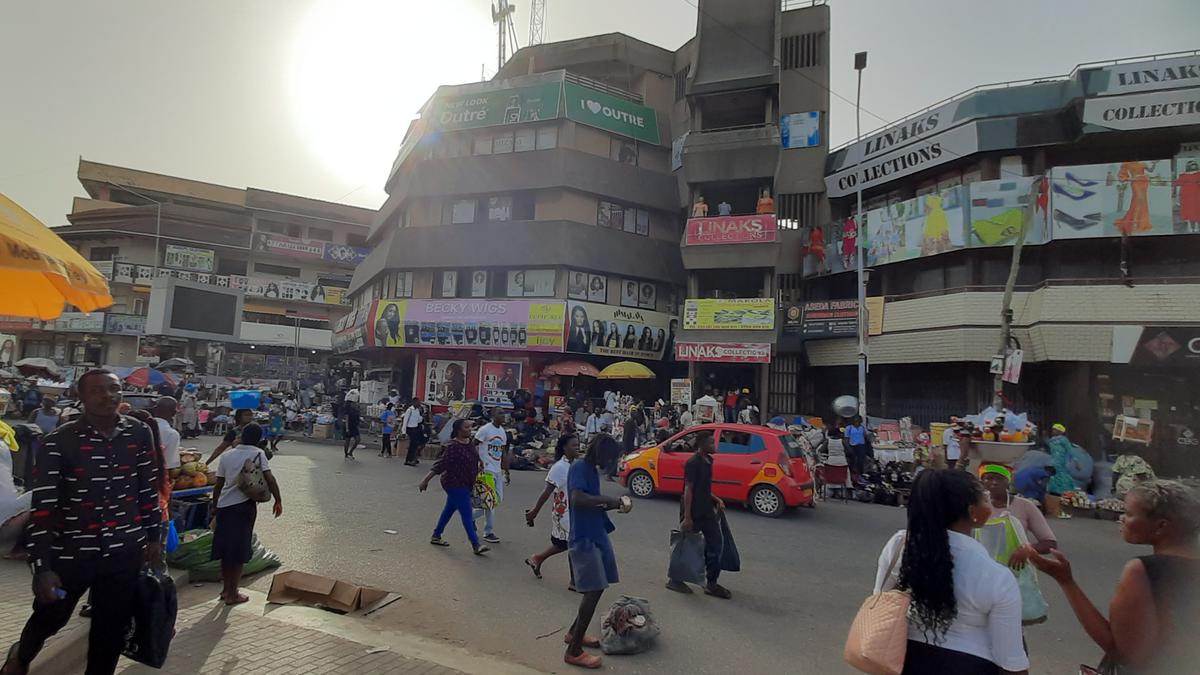
Africa’s debt crisis needs a political fix, contend experts
The Hindu
Ghana's women vendors navigate economic turmoil, highlighting global debt crisis at Accra conference.
Ghana’s women vendors and hawkers are hard to miss. Attired in bright colours and bold prints, they walk swiftly on capital Accra’s streets, bearing baskets with various items on their heads, as infants wrapped in cloth carriers sit clasping their shoulders. As key contributors to the country’s informal economy, the women make a fine balancing act look easy.
Their labour, like scores of fellow Ghanians’, is crucial not only for finding incomes for their families, but also for helping rebuild the country’s fragile national economy. In December 2022, Ghana defaulted on most of its $30 billion foreign debt, as its economy crashed. The government is currently grappling with creditors to restructure its debt. It is yet to secure a “workable debt deal” with bond holders.
Ghana, like several other African countries, is neck-deep in debt and stifled by its repayment schedule. Addressing the Paris Club in June last year, African Development Bank Group President Akinwumi A. Adesina said external outstanding debt service payments for 16 African countries rose to $22.3 billion in 2023, significantly burdening government revenue. For the median sub-Saharan African country, the loan interest to revenue ratio has doubled in the past decade to 11 % — a rate almost four times higher than in advanced economies, according to a 2023 International Monetary Fund publication.
Neither is Ghana’s situation peculiar, nor is the trend of excessive borrowing by governments confined to Africa. By end of 2023, the World Bank found 60 % of low-income countries to be in debt distress, or at high risk of it, and called for urgent action to prevent record debt repayments by the world’s poorest countries escalating into a full-blown crisis.
Middle-income countries are not insulated, as is evident from Sri Lanka’s case. In a similar predicament after its own economic meltdown and unprecedented default in 2022, the island nation is trying hard to finalise a debt treatment plan with its diverse set of creditors. Coming to an agreement, including with private bondholders, is a pre-requisite for the next instalment of the IMF’s package that the country hopes will revive its economy.
To reflect on the growing incidence of countries getting trapped in a cycle of debt and distress, economists and policy experts from different parts of the world converged at a recent international conference on the ‘African debt crisis’ in the coastal city of Accra. The forum, while foregrounding a pan-African position on the debt crisis, also put forth diverse views on other debates such as exiting Africa’s Colonial-era currency, the CFA franc that more than a dozen states in Africa have shared for some seven decades now. Organised by the International Development Economics Associates (IDEAs) network in late March, the conference flagged both, common features and distinct challenges of debt-distressed countries across Africa, Asia, and Latin America. Speakers sought substantial reform of the international financial architecture that, they argued, unfairly burdened the Global South. They mulled a more active role for the UN in negotiating debt treatment — including crucial haircuts on the principal amount owed — through a comparable system monitored by a transparent, multilateral body.
Senior Nigerian academic Adebayo Olukoshi contended that the relationship between creditors and debtor nations reproduces the dynamic of dominance and subordination in the post-colonial era. “Driven by international agencies and powerful actors, the narratives of ‘fastest growing economy’ and ‘emerging markets’ pushed many African governments into indiscriminate borrowing,” he noted, pointing to loans that invariably fuel consumption. “Cabals” comprising local elite, lawyers, and think tanks paid little attention to development outcomes of the high-interest loans, he said.













